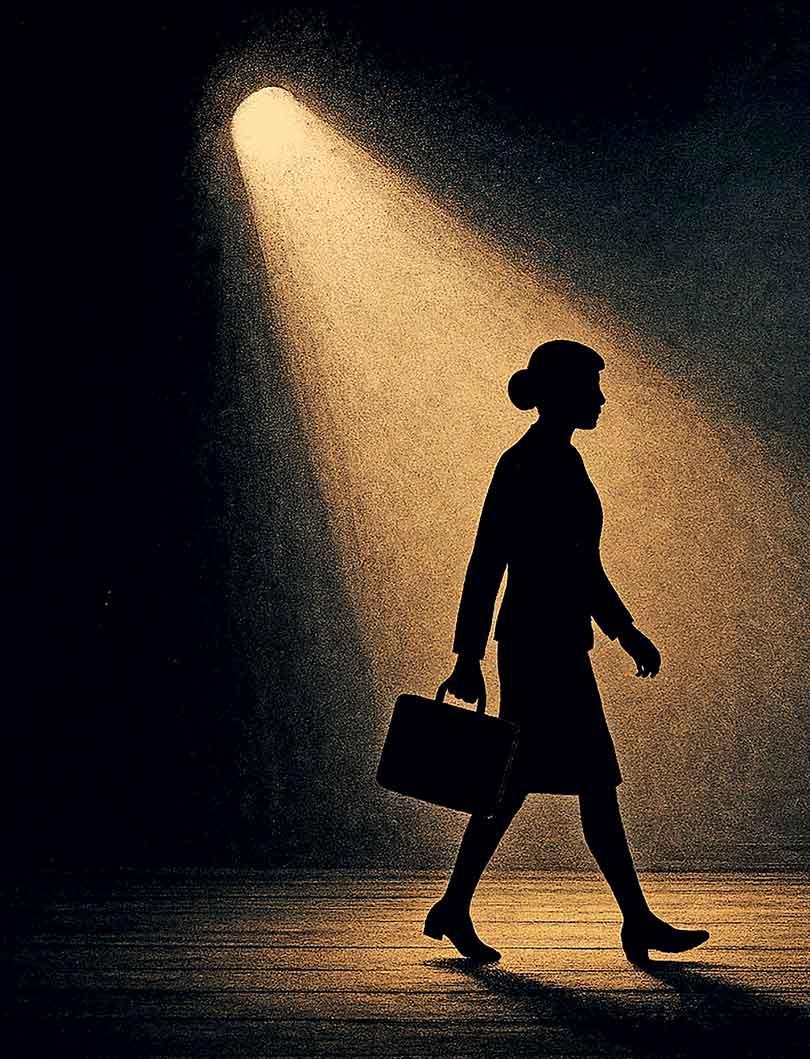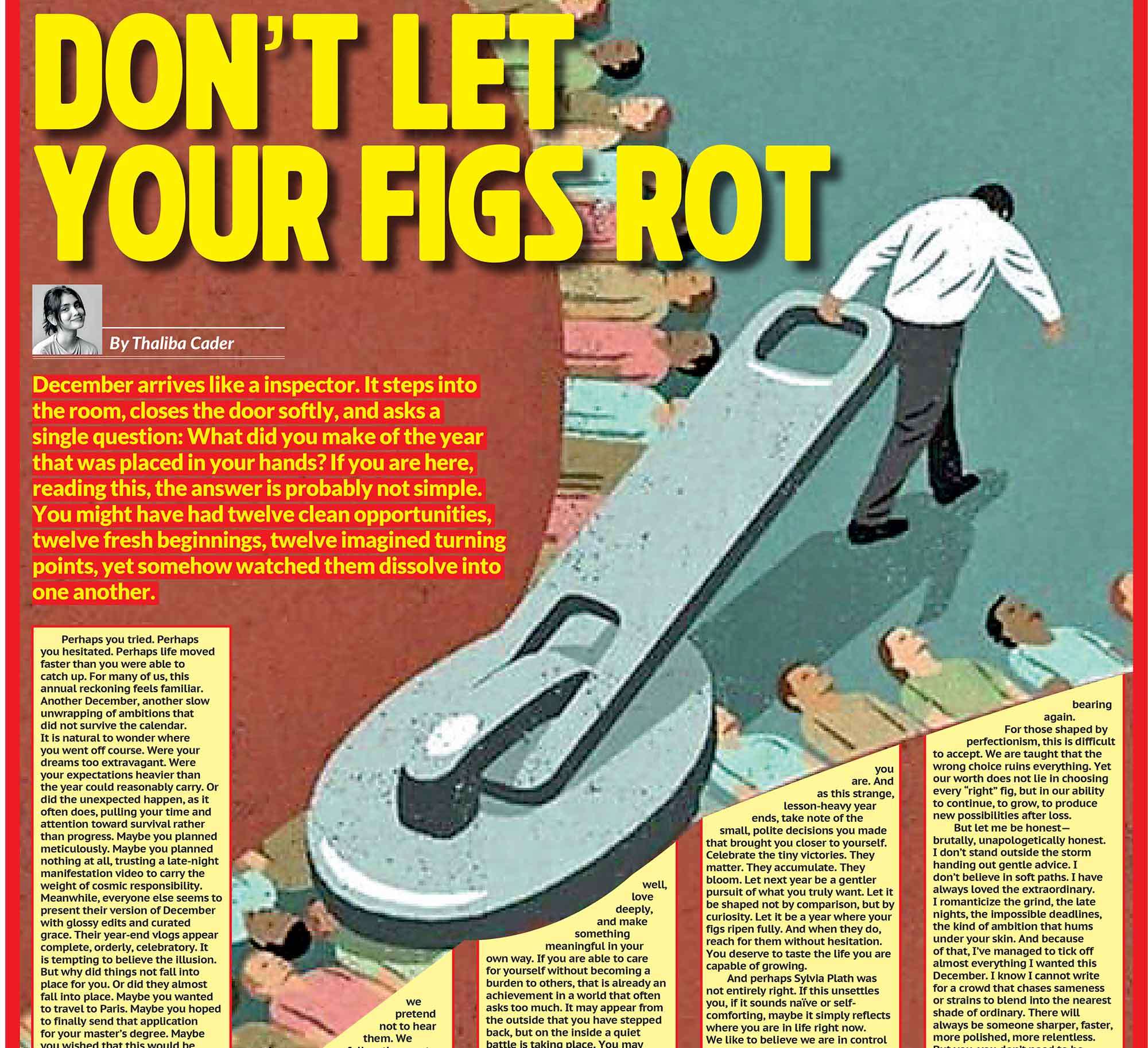
By Jumana Lukmanjee
Sri Lanka’s Silent Stage Exit: The Teacher Drain Crisis
The curtain rises on a troubling scene in Sri Lanka’s education sector. It is not the children who are slipping quietly out of the classroom, but the teachers themselves. Day by day, one more English teacher vanishes from a city school; a science instructor leaves for an unseen stage; a veteran drama teacher quietly submits a resignation letter, stepping into a world that promises not just better pay but a more dignified professional life. This is the theatre of teacher drain; a national tragedy unfolding with dramatic intensity.
A Vanishing Cast
Reports and surveys echo the same refrain: the country faces a shortfall of tens of thousands of teachers in critical subjects such as English, science, and mathematics. The exodus is not confined to state schools; international schools, once bathed in prestige, are equally struggling to hold onto staff. Turnover rates continue to rise, and children are left with broken continuity. The cast of education is vanishing, one by one.
The Push and Pull
This drain is not simply a story of ‘better pay elsewhere.’ It is the collision of push and pull factors. On the push side: overcrowded classrooms, examination-driven teaching, lack of professional development, and stressful administrative demands. On the pull side: opportunities for recognition, creative freedom, and environments where teaching is treated with dignity. The result? A one-way flow that weakens the backbone of education.
A National Stage with Empty Wings
The problem cuts across two landscapes: the state schools, which serve the majority, and the international schools, which once promised global standards. Both are affected, though in different ways. In state schools, children in rural provinces often face months without subject teachers. In international schools, the constant turnover means children are taught by a revolving door of instructors, many of whom leave mid-year. Theatres without actors cannot run. Classrooms without teachers cannot perform.
The Emotional Toll
For those who stay, morale is low. Teachers speak of being ‘burned out,’ ‘undervalued,’ and ‘drained.’ One veteran drama educator described the profession as ‘a stage without applause’ — the work is relentless, yet recognition is scarce. The irony is cruel: teachers are in demand globally because of their resilience and adaptability. Yet at home, these very strengths are underappreciated.
Research Echoes
This is not a sudden tragedy but part of a global chorus. International reports warn of looming teacher shortages, with millions more needed by the end of the decade. Countries with fragile economies are most vulnerable to losing staff. For Sri Lanka, the crisis is amplified by inflation, depreciation, and shrinking investment in education. Even privately funded schools are not immune, as attrition directly impacts student outcomes.
A Dramatic Pause: What Is at Stake?
Imagine a classroom. Twenty-five eager children sit with notebooks open. The teacher is absent. A substitute enters, unfamiliar with the syllabus. The students whisper, shuffle, lose focus. Slowly, the rhythm of learning collapses. Multiply this scene across a thousand schools: the stage collapses under its own silence. What is at stake is not merely staffing. It is the future of an entire generation.
Curtain Call: What Can Be Done?
Stopping this drain requires more than rhetoric. It demands systemic change:
1. Competitive pay: teaching must be made sustainable.
2. Professional recognition: educators as leaders, not clerks of exams.
3. Creative autonomy: classrooms should become spaces of innovation.
4. Policy reform: incentives, development, and retention must be priorities.
5. Public discourse: only when the nation acknowledges the vanishing cast can solutions be demanded.
The Final Line
The teacher drain is not a sudden tragedy but a slow unraveling, a performance where the lights dim one by one until the stage is bare. If action is delayed, we risk raising a generation of students without mentors, without guides, without inspiration. As one educator poignantly put it: ‘A country without teachers is a country without a future. We are not losing staff. We are losing storytellers, scientists, dreamers, and directors of tomorrow.’ The curtain has not fallen yet. But the stage is dangerously empty.










